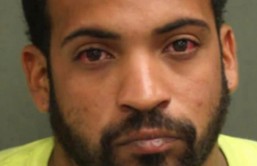Synthetic marijuana remains a major issue for the NFL, and while other drugs like cocaine, heroin and traditional marijuana are continually tested by the league, screenings for synthetic marijuana aren't part of the NFL's typical testing protocols, according to A.J. Perez of USA Today Sports.
New England Patriots defensive end Chandler Jones had a bad reaction to synthetic marijuana earlier this month and was taken to Norwood Hospital, according to Jim McBride and Christopher Gasper of The Boston Globe. Jones is just one high-profiled NFL case of a player having a bad reaction to synthetic marijuana, as Seattle Seahawks fullback Derrick Coleman told police that he had smoked synthetic marijuana prior to a car accident in October. The Seahawks fullback has already been suspended for a game, and the Bellevue Police Department has recommend felony charges against the Seahawks fullback.
"As long as people are willing to do stupid things to their bodies, we are going to have problems with these kinds of drugs," DEA spokesman Rusty Payne said, via USA Today Sports. "This is not something you can legislate or arrest your way out of to solve."
Synthetic marijuana has developed into a major issue across the world, and the Centers for Disease Control and Prevention has stated that there were 15 reported deaths from the use of the drug over a five-month span this past year, according to Perez. "Referring to these drugs as synthetic marijuana gives people the false sense of safety," Payne said. "The use of these drugs can have disastrous consequences and it's not just a problem in U.S. This is an issue around the globe."
Synthetic marijuana has clearly become an issue in the NFL, and that may lead to changes down the road for the league's testing protocols. "Synthetic marijuana is not currently part of the basic testing panel, but the medical advisors have the discretion to add it to an individual's testing panel as appropriate," NFL spokesman Brian McCarthy said, via USA Today Sports. "Synthetic marijuana falls within the purview of the policy," since the substances are illegal drugs.
It will be interesting to follow both how the NFL and the NFL Players Association respond to this new dilemma, as it doesn't look to be going away any time soon for both the players and the league.








